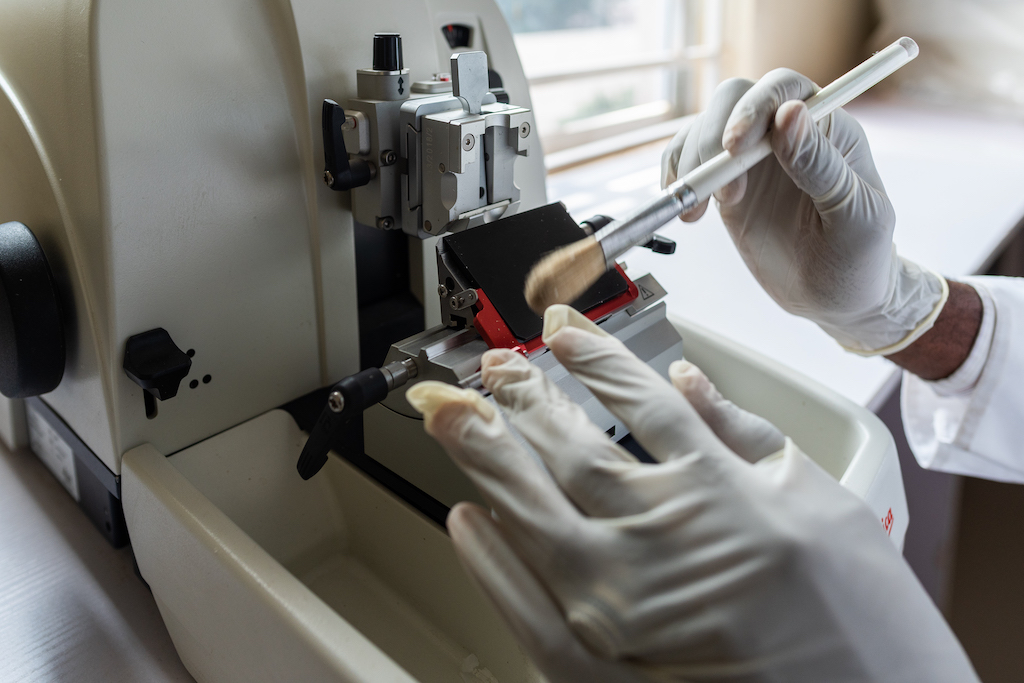Launching HPV vaccination
Eswatini – When 13-year-old Eswatini primary school pupil Tenele Sibandze* (not her real name) overcame her fear of being vaccinated against human papillomavirus (HPV), she became one of tens of thousands of young girls protected against cervical cancer, the country’s leading cancer among women aged 15 to 49.
During the country’s first-ever HPV vaccination campaign launched in June 2023 by Her Royal Highness Inkhosikati laMatsebula, a total of 46 674 schoolgirls were reached by 84 teams of nurses that visited schools across the country. In Eswatini, incidence of HPV is fuelled by high HIV rates, driving up cervical cancer case numbers and deaths. The HPV vaccine can prevent most cases of cervical cancer if it is administered before girls or women are exposed to the virus.
“We will continue preaching the message that prevention is better than cure.” Juliana Takaruva, teacher
World Health Organization (WHO) supported the first ever HPV vaccination campaign by developing the vaccine introduction plan, micro planning, the development of health worker guidelines and monitoring tools, including a readiness assessment for HPV vaccine introduction, and supportive supervision.
“Vaccinating our girls, in line with the WHO recommendation, will help us to prevent HPV infection, and thus reduce the incidence of cancer among our people,” says Her Royal Highness laMatsebula.
Every year Eswatini records about 360 new cervical cancer cases, with almost one in every three patients dying as a result. Currently, more than 2000 women are living with cervical cancer in the country, with more than 700 cancer-related deaths recorded in the past five years.
“I am so grateful, as a health worker, to be able to give these children protection against cervical cancer because our country is seeing a growing number of women with the disease.” Sandzisile Mamba, vaccinator
HPV vaccines are both safe and highly effective in preventing HPV types 16 and 18, which are together responsible for about 70% of all cervical cancer cases globally. The vaccines are also highly efficacious in preventing precancerous cervical lesions caused by these virus types.
Through the commitment of Risk Communication and Community mobilization teams comprising staff from WHO, the health promotion unit and other partners, the campaign was well-received by parents and teachers alike. Sensitization activities were conducted across various media, including radio, print and social media, with parents eager to learn more.
Sibandze explains that the nurses briefed the school goers about the vaccine and its benefits, teaching them that the vaccine prevents HPV, and so reduces the likelihood of contracting cervical cancer later in their lives.

Teacher Juliana Takaruva says: “This is a real benefit for our learners, and we hope that the health education they received will also advance a broader understanding of the dangers of not vaccinating. We will continue preaching the message that prevention is better than cure.”
Vaccinator Sandzisile Mamba says WHO and the Eswatini Ministry of Health provided comprehensive training for over 400 health workers ahead of the campaign. Although she knew about HPV, she says that she was not well versed about the preventative vaccine.
“I am so grateful, as a health worker, to be able to give the children protection against cervical cancer because our country is seeing a growing number of women with the disease. It’s so important to protect these children against HPV,” she says.
WHO Communications Officer
Email: mavusow [at] who.int
Tel: +26878020180
WhatsApp: +26876509256
Media Relations Officer
WHO Regional Office for Africa
Email: dalalm [at] who.int
Tel: +254 703 245 761 (WhatsApp)